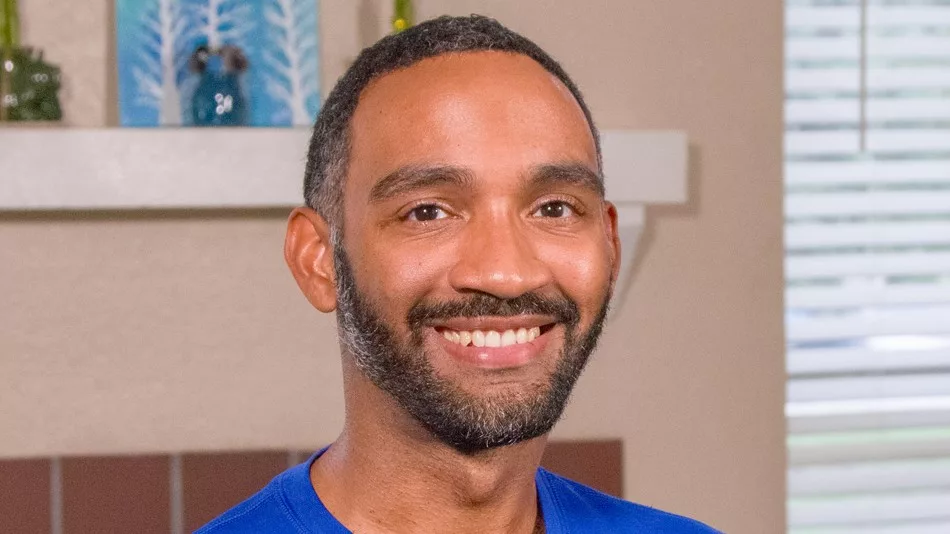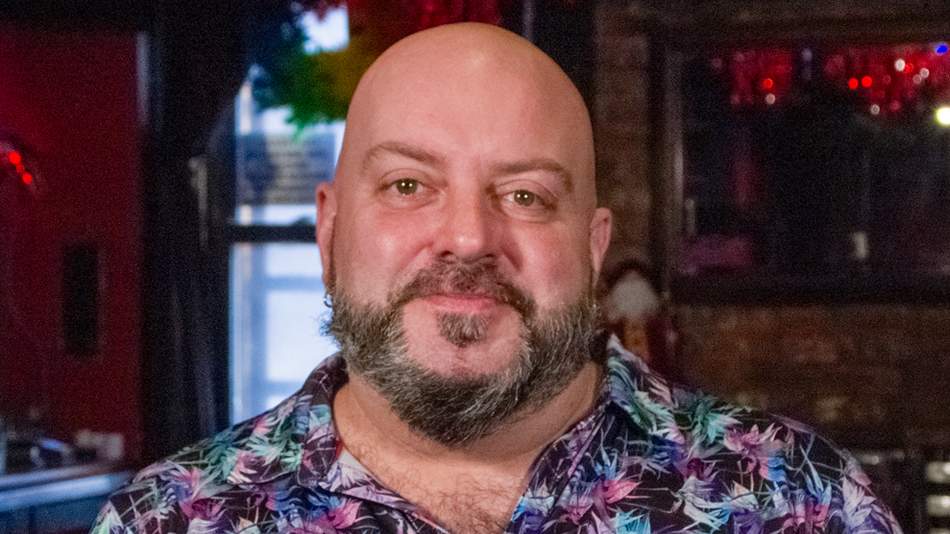My name is Robert Scott and I’m from San Diego, California. My father was a periodic alcoholic, he would come home and tear up the house, I mean, not literally, but cause a great deal of kind of a war zone when he would go out and drink and come home on the weekends. But that’s the environment that I grew up in so I poured myself into books and I poured myself into academics. And I also, because my family looks so different from each other, we had people who looked white in my family, we had people who looked like me in my family, we had people who were Japanese and Portuguese and black in my family, so I never felt at home and I always felt like I needed to be with a group of people that I could really identify as my tribe. I ballooned up in terms of weight because of my food addiction and at some point I weighed 287 pounds and I had a 46 inch waist and I got through graduate school, lived on a commune up in Mendocino County with 14 other people. And I call that my Jerry Garcia, beard and big shoe period, and then I moved to San Francisco in 1971. And I lost 130 pounds starting in 1971. I got tired of people telling me, “You’ve got such a nice face” and that’s all they’d say. And I think what happened to me was that I really developed a hard edge around that period of time because I was still me. I presented myself differently to the world after losing 130 pounds so the world totally responded to me differently. And it really made me a little jaded in terms of people’s true motivations and it also factored into an issue that I’ve been dealing with throughout most of my adult life and that I’ve seen in the gay community which is body dysmorphia. So I’ve got lots of horror stories of friends who just weren’t perfect enough. I want to fast forward a little bit because this was the beginning of the AIDS crisis in San Francisco and a number of my friends were dying and they were getting lesions on their body, they were getting toxoplasmosis. It was called GRID back in the early days back in the early 80s. And I got into recovery because after I lost a lot of the weight, I got invited to do a lot of things that I could only watch from the sidelines before. I was invited to parties, I was invited to have sex with people, I was invited to participate in things I thought I would never be participating in. Well one thing lead to another and next thing I knew I had a cocaine addiction. So 1985, I got into recovery and I started going to 12-step meetings for persons with AIDS and with HIV so that we would talk about the issues that were confronting us and the community but from a 12-step perspective. And those became very popular meetings during that particular time. And at the time I also had a boyfriend at the time, his name was Gary Seeger. Gary was a model for Colt Magazine. And he was very much the physical specimen. And 3 or 4 years into the crisis, the AIDS crisis, Gary developed toxoplasmosis. So how that affects you, how that affects a person is that, Gary knew that something was wrong with him and I didn’t want to tell him because he would start to tell me a story and I would ask him, “Well, what are you trying to say? What…” and I would try to finish his story for him and then he would know by my reaction that he wasn’t making enough sense. So I stopped doing that and I would just nod and listen and listen to what he had to say. It taught me the importance of just showing up for people and it taught me the importance of listening and I think that’s been a real gift for me now in recovery after all these years. So that was, I mean I went from academic grad school, PhD candidate, to a hippy living on a commune, to a fat gay man coming to San Francisco losing 130 pounds, finding tribes at every juncture. The only tribe that’s actually stuck for me at this juncture in my life is the tribe that I found in recovery. I’m still friends with those people and it’s 40 years later. I also just want to throw in really briefly that I saw an interview with RuPaul, he was being interviewed at New York Public Library and he mentioned looking for his tribe throughout most of his life. And I really honed in on our similarities there, it’s that thing that we learn to listen for in time as we get adults. Stop dividing yourself from other people, stop listening for differences and start listening for similarities between you and the person that’s talking.
The Importance of Finding Your Tribe In The Gay Community.
by Robert Scott








Share